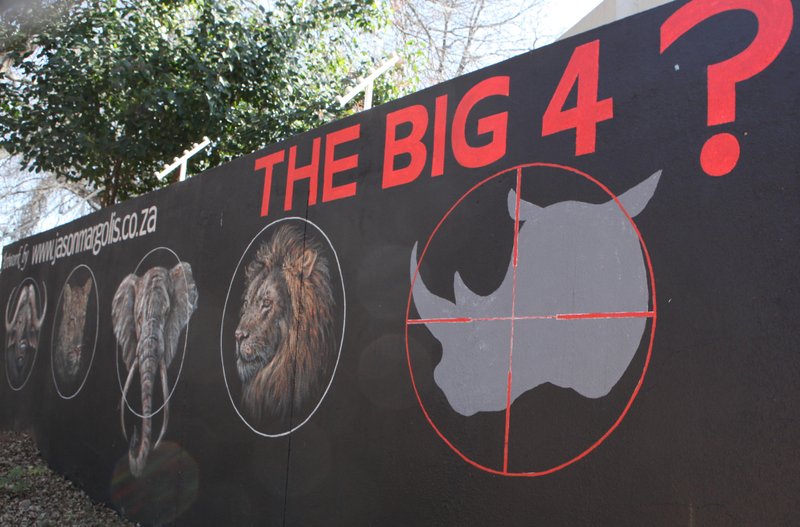JOHANNESBURG -- South Africa's Kruger National Park is considering a plan to move some rhinos out of the flagship wildlife reserve in an attempt to protect them from poachers.
The goal is to "spread the risk" by evacuating rhinos to other game reserves because Kruger park is heavily targeted by poachers, park spokesman William Mabasa said Monday. No decision has been made on the proposal, and there is no guarantee that other parks are safe because "poachers are going everywhere," he said.
Many poachers cross into Kruger from neighboring Mozambique, and they are often able to elude ranger teams that operate with limited aerial surveillance across the vast park of 7,500 square miles.
About 560 rhinos have been poached in South Africa so far this year, and more than half were killed in Kruger park in the northeastern part of the country, the national parks service said earlier this month. About 160 suspected poachers have been arrested in 2014.
South Africa, which has 70 percent of the world's rhinos, lost a record 1,004 of the animals to poachers in 2013, according to government figures.
Conservationists warn that a "tipping point" could come as soon as next year when rhino deaths exceed births and the population goes into decline.
International criminal syndicates are said to be involved in poaching rhinos, whose horn is worth a fortune on the illegal market in parts of Asia. Some Vietnamese and Chinese view it as a status symbol and a healing agent.
Kruger park, a popular destination for international tourists, has borne the brunt of rhino poaching for years despite international efforts to help its conservation efforts.
In March, American philanthropist Howard Buffett, a son of investor Warren Buffett, pledged nearly $24 million for protecting rhinos, earmarking the money for ranger teams, sniffer dogs and other security measures in one-third of the Kruger park.
Mabasa did not say how many rhinos might be moved from Kruger under an evacuation proposal that is being discussed at the park's "board level."
Kruger has experience in moving rhinos, dispatching them to private game reserves inside South Africa and to conservation agencies outside the country, Mabasa said.
He noted that rhinos were sent to Kruger from what is today KwaZulu-Natal province, south of the park, in the 1960s.
Five poachers, including one who was injured in a firefight with an anti-poaching patrol, were arrested at a game reserve in KwaZulu-Natal, a South African news agency quoted police as saying Sunday.
The suspects were found with an unlicensed hunting rifle, ammunition, a silencer and an ax, and face charges including illegal hunting and attempted murder, according to the South African Press Association.
South Africa is considering whether to propose a regulated trade in rhino horn to curb poaching.
Legalization would require the approval of Convention on International Trade in Endangered Species of Wild Fauna and Flora, the international body that monitors endangered species, which will meet in South Africa in 2016.
A Section on 07/22/2014

